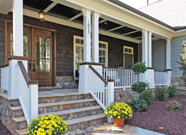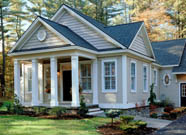The decision to sell or purchase a home is an important decision, and how better to proceed than with accurate and reliable information about the property in question.
Here’s what OUR home inspection covers:
- Roof, Attic, Insulation & Ventilation
- Plumbing & Electrical Systems
- Siding, including hardcoat and synthetic stucco (EIFS)
- Appliances
- Heating & Cooling Systems
- Foundation (Slabs, Block wall, Poured Concrete)
- Walls, Ceilings, Windows, Doors
- Garages & Driveways
- Thermal scan of interior for hidden moisture, electrical issues and insulation problems
- Decks/Porches
Additonal Services

Modern Digital Reporting
I use state of the art software to generate a detailed report that is backed up with all my training, written with the client in mind, and not emotionally driven. My reports include high resolution images and details descriptions of my findings with a focus on health and safety, and they are completely digital so they can easily be accessed and shared.

Aerial Drone Roof Inspections
Aerial Drone technology gives our inspector high-definition photography images. We adheres to FAA Flight regulations for Drone roof inspections. FAA regulations restrict the proximity to airports and designated “no fly zones”. When a home is within those FAA restricted areas our inspectors use other methods to inspect roof surfaces.
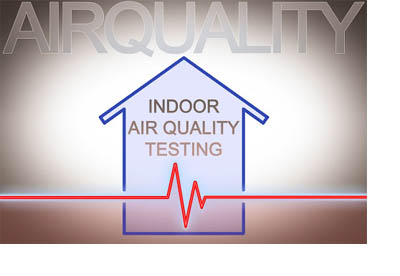
Air Quality
We complete this type of inspection following protocol for gathering these samples and delivery to the laboratory for testing. Analysis and subsequent reports generally take 2 business days.

Basement Inspectios
Focused on your lower level, our basement inspections can clue you into structural breaches, moisture and mold, pests, and other unwelcome trouble. We look to spot any problems and boil them down for you

Builder’s Warranty
We complete your Builder’s Warranty Inspection beginning the 10th month after your closing date. This allows Builders the opportunity to complete repairs prior to the expiration of your warranty on the 12th month.

Chinese Drywall Inspectios
The smell that emits from defective drywall is quite strong and is similar to the smell of rotten eggs. The purpose of an inspection is to identify evidence of problematic drywall to prevent health problems and deterioration of electrical systems.

Commercial Property Inspections
We complete inspections on office, retail, industrial, warehouse, strip mall, as well as stand alone buildings. We complete this type of inspection to help Investors look for problems with the roof, plumbing, and other issues that may result in a financial loss.

Crawl Space Inspections
We complete inspections of crawl spaces where access to electrical, plumbing, heating, ventilation, and AC Systems are found. We will also look for anything that may cause future damage to the home

Electrical
We complete electrical inspections keeping in mind age related concerns, incorrect wiring, unnoticeable electrical current problems, unsafe wiring, corrosion, and the need for upgrading the electrical panel to accommodate today’s needs.

Electronic Pool Leak Detection Inspections
We complete an inspection of your pool, spa, or fountain to determine how many gallons per hour of water it is losing.

Energy Audit Inspectios
An energy audit inspection will identify energy-saving opportunities. It will help you understand your energy usage and ways to use energy better. An energy audit can identify safety concerns with electrical systems, wiring, and ventilation, thus making your home or business safer. It will increase a home's resale value..

Foreclosure Inspections
Foreclosure inspections help Mortgage Lenders look for problems with the roof, plumbing, and other issues that may result in a financial loss. Assessing the condition of foreclosed properties, provide potential buyers with a list of any issues and defects, document deteriorating conditions and water intrusion possibilities that may have occurred during the properties vacancy.
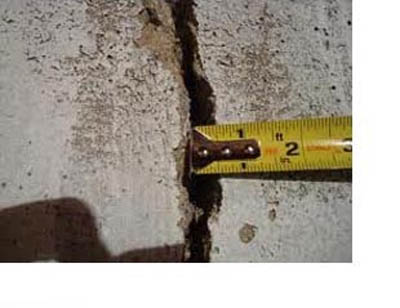
Foundation Inspections
We complete this type of inspection looking for evidence of pressures acting on the home's foundation causing cracks which usually appear at the weakest points in the construction. These must be monitored for movement, spreading, shifting, or widening. In a nutshell, a foundation inspection determines if your home's foundation needs repair and then provides the plan of action and cost for repairing the foundation.

Four Point Inspection
We complete this type of inspection focusing on the condition and age of:
HVAC (Heating, Ventilation and Air Conditioning)
Electrical wiring and panels
Plumbing connections and fixtures
Roof

HUD Inspections
During our HUD inspection, we check to make sure your property manager or landlord is following HUD's inspection standards. Inspectors may find issues that your property fix at once to meet HUD's standards and ensure that your home is decent, safe, and sanitary. Inspections are meant to help and protect you.

HVAC Inspections
We complete this inspection looking at filters, clogs in the drainage, function of heating and cooling modes, venting issues, clearance to combustibles, damage, electrical connections, and restriction not allowing the system to work properly or safely.

Insurance Inspections
The primary purpose of a property insurance inspection is twofold: to come up with an accurate estimation of a property's replacement cost and to uncover any current existing or potential risks that could translate into future claims.

Investor Property Inspections
Investor Property Inspections are recommended at least every two years for those who own rental properties or second homes. Costly repairs maybe avoided when you are informed about maintenance and repair issues. It also aids in the budgeting for replacement items.

Mobile Home Inspections & Tie-Down Certifications
We complete a Mobile Home Inspection, as we would a home inspection, including the crawl space below the home. In addition, also can complete a Mobile Home Tie-Down Certification, for Insurance purposes, making sure the home meets criteria of structural stability.

Mold Inspections
Mold inspection simply identifies the presence of mold and generally defines the size of the problem, usually in square footage. Mold testing attempts to identify what specific type of mold is in your home and how many mold spores are in the air.

Multi Family Inspections
We complete inspections on Small and Large Apartment Buildings, Condo Buildings, Duplex, Triplex, as well as Fourplex. There are often requirements of multi-family rental dwellings of four (4) or more units to be inspected for code compliance in order to preserve property values, promote community safety and well being, and encourage investment in upkeep and maintenance.

New Construction
We complete this type of inspection looking for errors or omissions that have occurred during the build process which need to be corrected prior to closing. Typical phase inspections would include:
Pre-Foundation - looking at plumbing, foundation support, and structural
Pre-Drywall - Prior to walls being closed in by drywall
Pre-Closing - Final inspection prior to closing
Post-Closing - For those pushed to close by the builder without the builder having adequate time to remediate concerns before closing
Home Warranty - Completed in your 10th month of home ownership to give to the builder adequate time to make repairs prior to the warranty ending at the end of the 12th month.
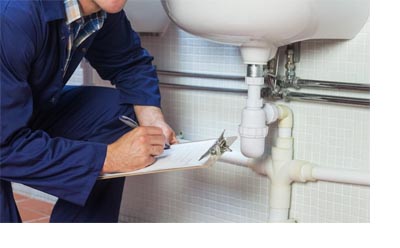
Plumbing Inspections
We complete this inspection looking at, among other things, the properties water supply, components, piping, type of pipe used, fixtures, vents, flashing, insect or animal intrusion, placement near electricity, clothes washer drain for possible sewer gas leakage, accessibility of water fixtures, as well as shut of valves.

Pre-List Inspections
We complete this type of inspection prior to listing your home on the market. This will give you insight into areas of your home that may need repair or improvement.

Pre-Purchase Inspections
We complete this type of inspection prior to purchase to give the buyer insight as to the condition of the home and what, if any, corrections or repairs may be needed.

Radon Inspections
Radon Inspections measure radon levels in picocuries per liter of air. While there is no safe level of radon, the Environmental Protection Agency set an action level of 4 picocuries per liter, or pCi/L. This means that once radon levels reach or exceed 4 pCi/L, you must take action to fix the problem.

Roof Inspections
We complete this type of inspection looking at, among other things, the roofs construction, number of dormers and chimneys present, flashing, roof surface materials used, conditions of the materials used, condition of the mortar and bricks, proper placement of roof materials, rust, corrosion, as well as gutters and downspouts.
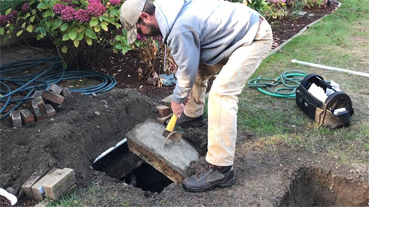
Septic Inspections
A septic inspection involves pumping the tank, evaluating the entire system, looking for parts that are worn, the tank's condition, and so forth. The inspector can identify problems such as these: A blocked drainfield.
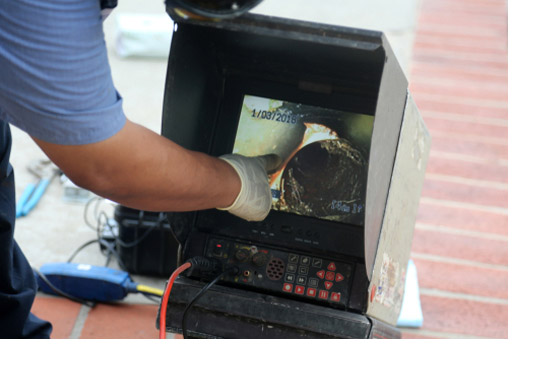
Sewer Scope Inspections
We used to believe scoping was only needed on older homes with those “past-their-life” cast iron. But we were amazed at how often problems were found on newer PVC drain piping. Even new construction! Tree roots, poor installation and settling can really affect your buried sewer pipes, so having it scoped ahead of time can save you THOUSANDS of dollars. Just ask anyone who has had to deal with sewer pipe replacement.

Structural Inspections
We complete this type of inspection looking at the foundation and supporting elements of the home looking for cracks, shifts, compromised integrity, sagging, and conditions that are unsafe or may lead to future damage.
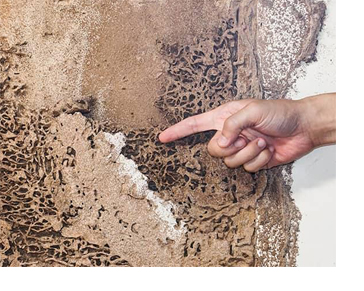
Termite Inspections
Our annual termite inspection is a huge part of termite control. These inspections not only look for signs of termite activity and previous damage, they also look for any areas of your home that might be at risk for future termite infestations.

Thermal Infrared Imaging Inspections
Infrared (thermal imaging) is an advanced, non-invasive technology that allows the inspector to show homeowners things about their homes that can't be revealed using conventional inspection methods. Ancillary inspection reports are just as important as the reports you generate for standard home inspections. We complete this type of inspection looking for possible water intrusion, water damage, active leaks, abnormal electrical hot spots, missing insulation, and safety hazards.
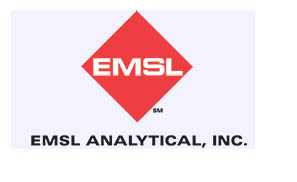
Well-Water Testing (For VA and FHA Mortgage) Inspections
We complete this type of required inspection following protocol for gathering the water samples and delivery to the laboratory for testing. Analysis and subsequent reports generally take 2 business days.
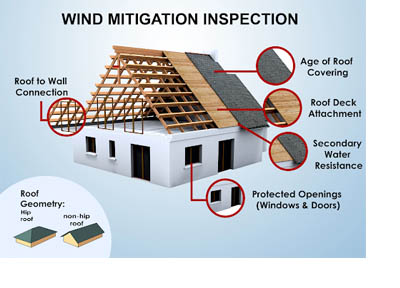
Wind Mitigation Inspections
We complete this type of inspection focusing on the appropriateness of a given structure’s construction in the event of strong winds such as a hurricane. Homeowners often submit this report to their insurance to receive a discount on their premium.
With so many great reasons to work with ProChek Home Inspections, LLC, why would you choose someone else?
|
|
